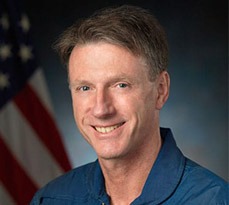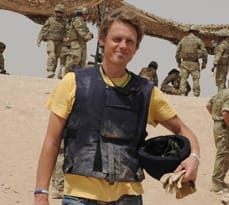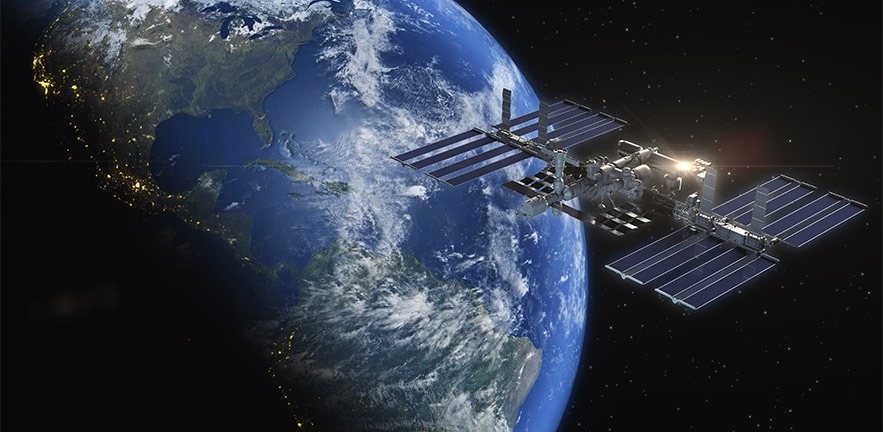Teamwork and straightforward conversations are essential, and especially so in cramped space vehicles, former astronaut Michael Foale tells Cambridge MBA students at Cambridge Judge Business School.
Difficult situations can arise in even the best work environments, so it’s important to be able to have safe and honest conversations. But this is especially crucial in a rocket ship or space station.

The importance of teamwork and having straightforward dialogue were central themes at a recent presentation by Michael Foale, a British-American astrophysicist and former NASA astronaut and Chris Barber, Founder and Executive Chairman of International Space School Educational Trust (ISSET). The occasion was the MBA Management Praxis course taught by Mark de Rond, Professor of Organisational Ethnography at Cambridge Judge Business School.
“Nothing out there is really insurmountable,” said Foale, who Zoomed in for the occasion from Colorado, but the key is resilience, preparation and leadership that builds effective teamwork.
“Michael Foale’s presentation gave students a unique opportunity to gain insight into an otherwise obscure world – one with exceptionally high stakes where there is a premium on creating psychologically safe spaces and equipping astronauts with the skills to manage courageous conversations,” said Professor Mark de Rond, who has often emphasised the importance of candid dialogue in sensitive or challenging situations.
“Unlike in many other spheres of life, one cannot easily ‘walk out’ of the MIR (the Russian space station) or the International Space Station. In extreme contexts like these, how really do people behave under pressure? How do they jointly solve conflict?” asks Mark.
Foale gave insight into those questions at the Management Praxis course taught by Mark, which focuses on complex negotiations in groups and developing relational skills including empathy, collective problem solving and mutual value creation. The former astronaut has been a regular contributor to the Cambridge MBA course for the past five years.
Foale was born in Louth, Lincolnshire, to a British father and an American mother, and then raised in Cambridge, where he received his doctorate in laboratory astrophysics from Queens’ College, in 1982. Before joining NASA in 1987, he was turned down twice as an astronaut candidate but refused to give up. Following the Challenger disaster in 1986, he applied for a third time and was selected.
Foale went on to become a veteran of six missions. He logged more than 374 days in space, including five months on the MIR in 1997 and six months on the International Space Station in 2003-2004. He told the MBA students about one of his most dramatic experiences, when the MIR was hit by a visiting cargo ship in 1997. “For a few seconds there we thought we were going to die,” he said.

After the Mir mission, Foale was asked to build NASA leadership training, and he explained to the MBA students how the highly successful teamwork and leadership training models used by NASA and the ISS can have clear application in the corporate world.
The NASA model was adapted from the National Outdoor Leadership School in the US, which uses wilderness settings to teach leadership skills to every member of a team. One focus of the training is to encourage everyone to suggest ideas and for every team member to listen to one another – which is important for an environment like the ISS where people are drawn from different countries, cultures and experiences.
Michael said that his own background, with parents of different nationalities and as someone who lived in Russia and learned the Russian language, helped him adapt to his life onboard launches and space stations.
“The Management Praxis course is designed to help students to negotiate ‘differences’, and to do so effectively, creatively, and fairly,” says Mark. “The skills they pick up can be used pretty much straightaway in their everyday lives. After all, we spend much of our time negotiating differences, even if we typically refer to these simply as ‘conversations’.”
“The module takes students from relatively simple, bilateral ‘distributive’ negotiations to more complex, multilateral ‘integrative’ ones that typically have consequences for those who have no voice in the negotiating room but whose viewpoints matter. By being provided with feedback from peers on how students ‘show up’ in negotiations – where they are more and less effective – they are able to reflect on their own blind spots and also to experiment.”
Such practical skills are a key part of the MBA and other programmes at Cambridge Judge.
“We do genuinely care about our students’ experience in Cambridge,” says Mark. “Even if, as faculty, we are highly research-driven, when our teaching begins, that research clock stops, and all our efforts are focused squarely on their development and well-being. They matter to us.”


